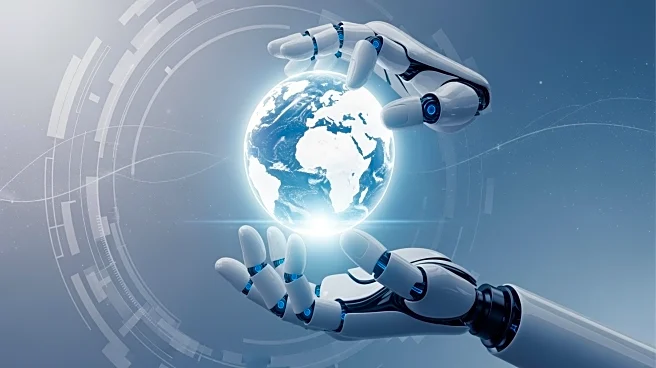What's Happening?
Howard Schultz, former CEO of Starbucks, has voiced significant concerns about the rapid advancement of artificial intelligence (AI) and the lack of regulatory measures to manage its impact. In an interview,
Schultz compared the trajectory of AI to that of social media, highlighting the delayed regulatory response to social media's adverse effects. He emphasized the moral responsibility of tech leaders, including Elon Musk and Bill Gates, to ensure AI development considers ethical implications. Schultz supports AI adoption but stresses the need for proactive regulation to prevent potential negative consequences.
Why It's Important?
Schultz's comments underscore the growing debate around AI's role in society and the need for comprehensive regulation to address ethical and societal impacts. As AI technology continues to evolve, its integration into various sectors could lead to significant changes in employment, privacy, and security. The call for tech leaders to prioritize moral responsibility reflects broader concerns about the balance between innovation and ethical considerations. Schultz's perspective adds to the discourse on how AI should be managed to benefit society while minimizing risks.
Beyond the Headlines
The discussion around AI regulation touches on deeper ethical and cultural dimensions, including the potential for AI to exacerbate existing inequalities or create new ethical dilemmas. The responsibility of tech leaders to guide AI development responsibly is crucial in shaping the future landscape of technology and its societal impact. Schultz's emphasis on moral responsibility highlights the need for a collaborative approach among industry leaders to address these challenges.










